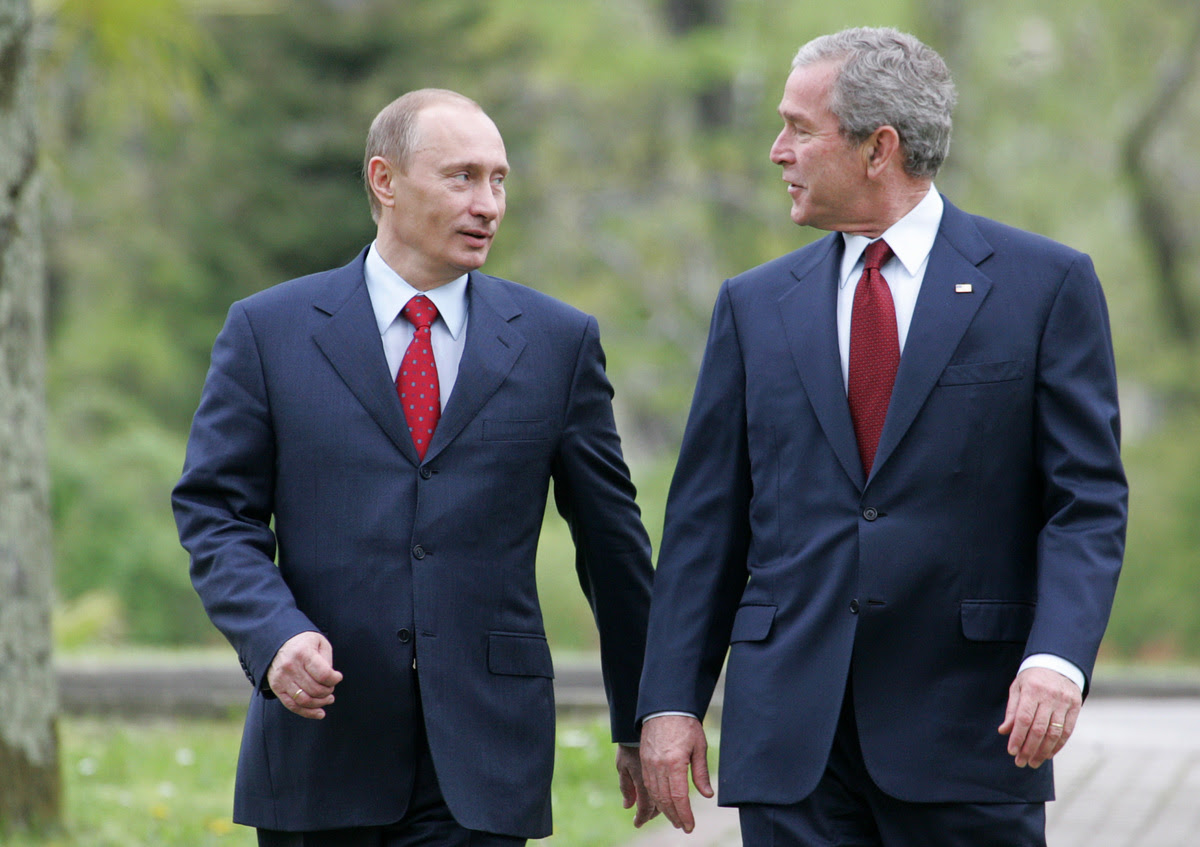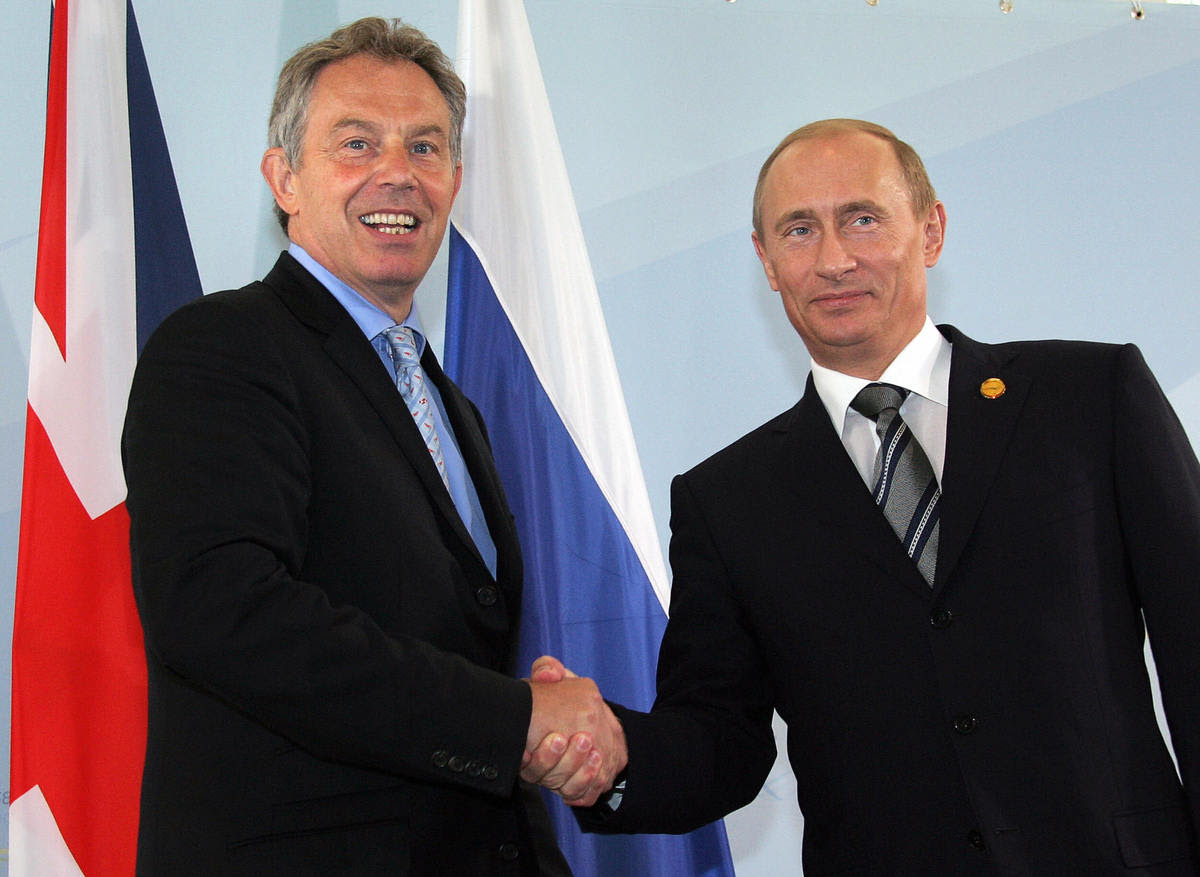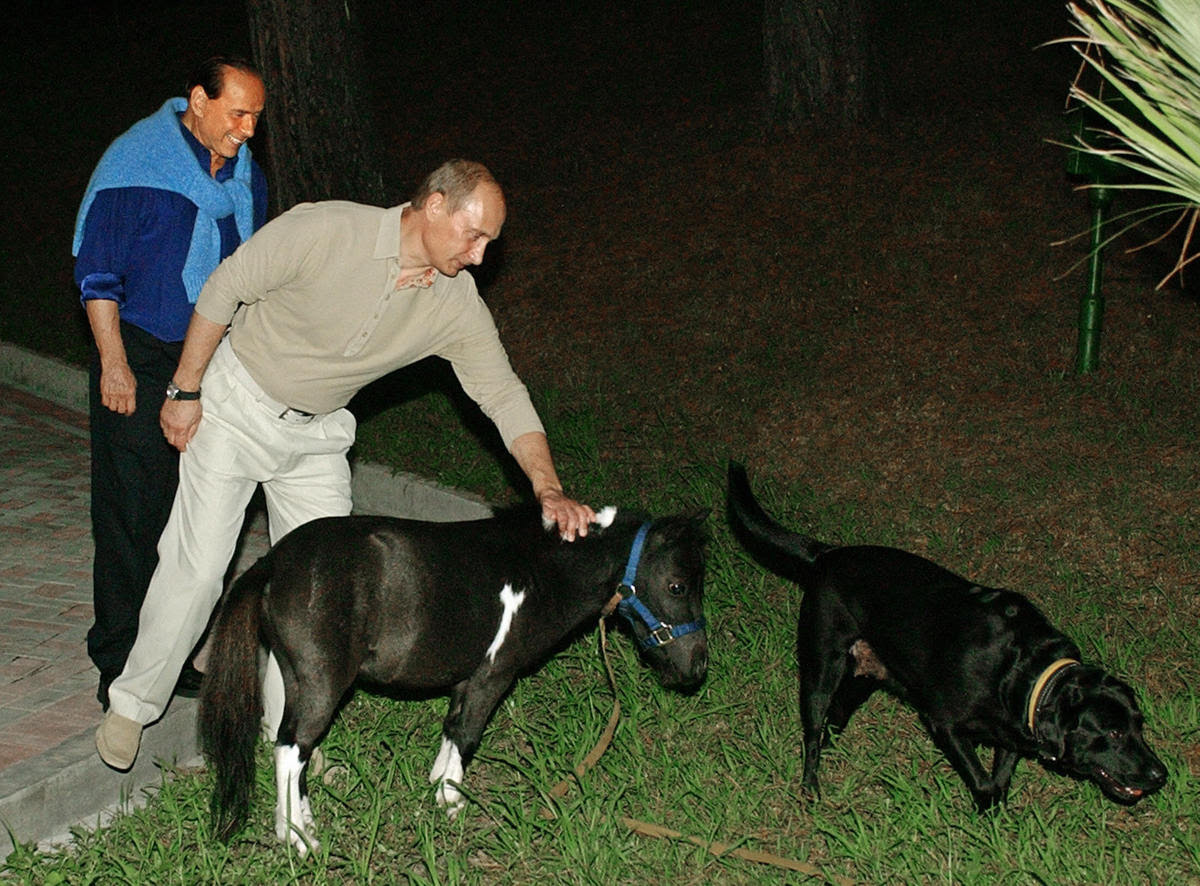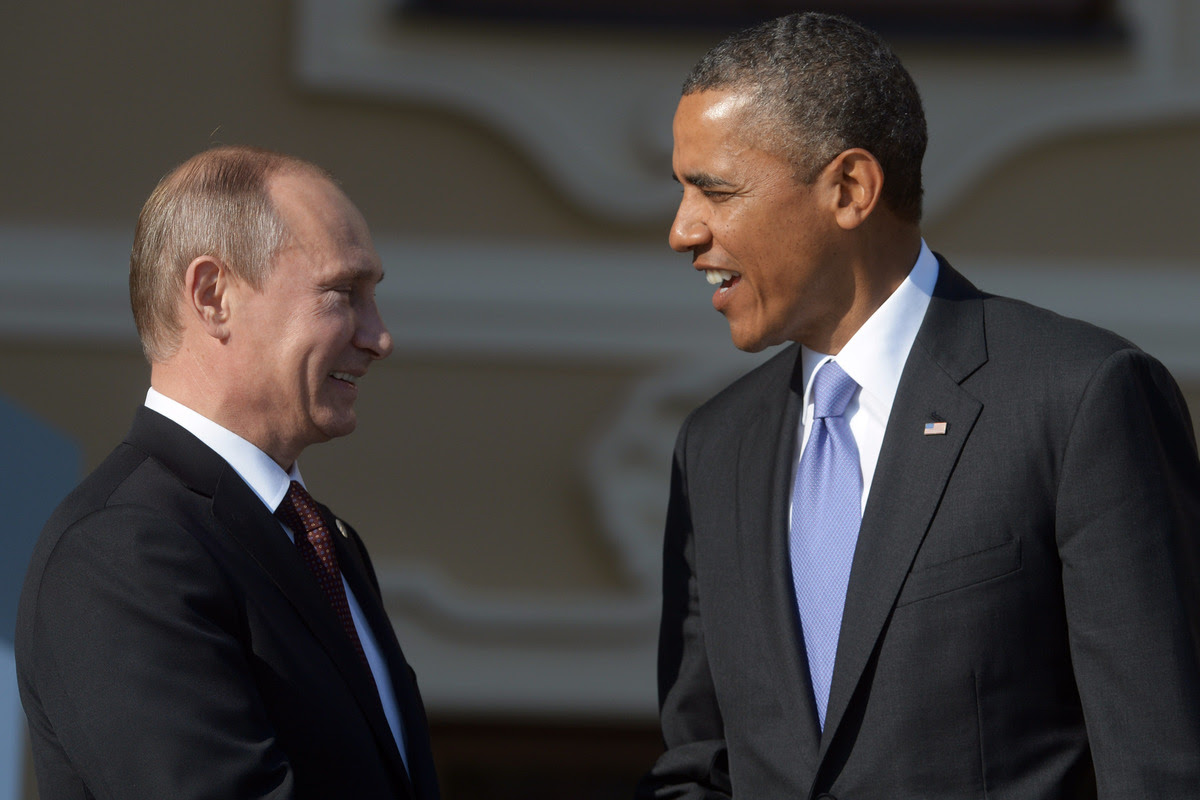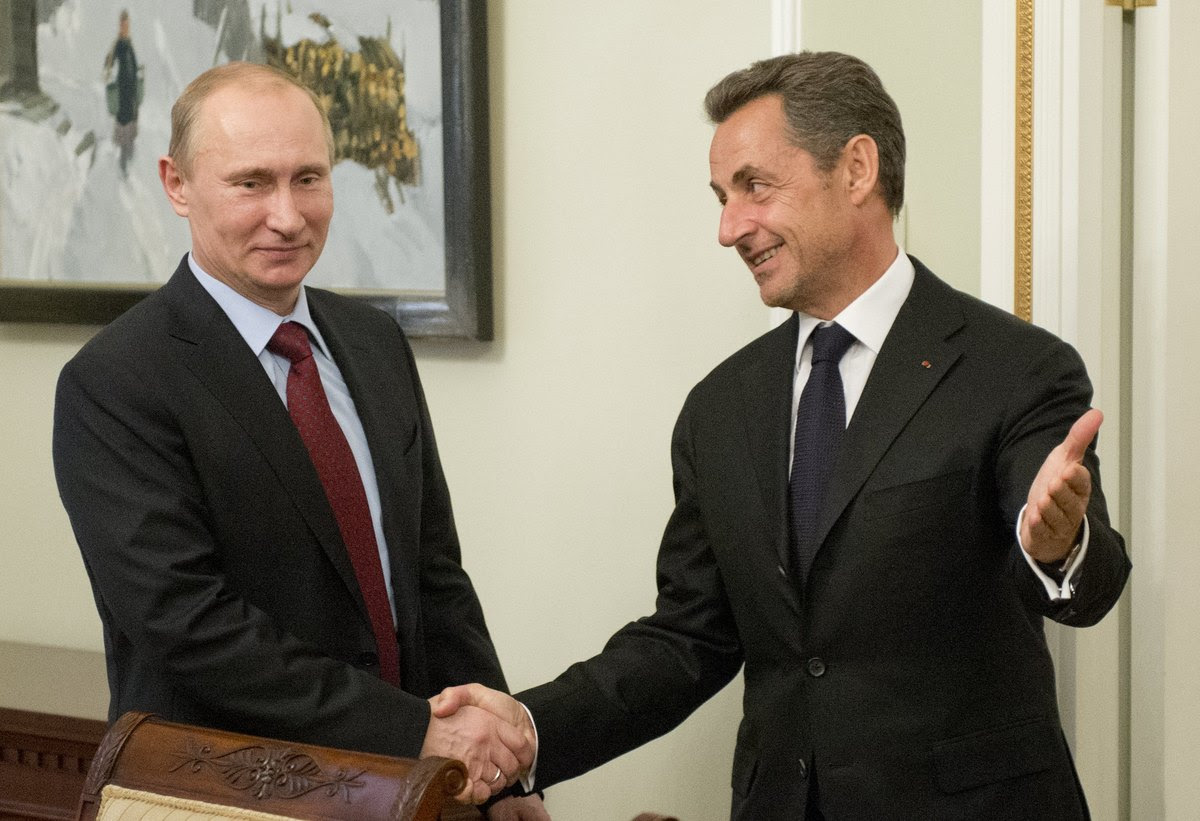Corporate Good Governance and public financial institutions: The need for their transparency in Africa continent.
By Morris Mabior Awikjokdit
“This piece is an attempt at presenting the topic at hand and hopefully that the readership will gain a point or two out of it. But warning: the topic is as vast as controversial and promises to remain so for at least some time to come! Recognizing such, this attempt is made to present some of the underlying principles of the vexed issue with the ultimate to justifying the clamor for citizenry information on the need for accountability from public financial institutions as espoused by the overarching principles of informed participation, transparency and democratic accountability based on universally accepted standards upon which the right to access information which is factual, reliable, wholesome, timely and objectively verifiable is based”.
Second, there is the need for calling on public financial institutions in particular to further recognize the need to review and amend their information disclosure policies to bring them in line with the dictates of and for sound public financial management, transparency, probity and democratic corporate accountability to facilitate and ensure compliance and best practice.
Content
Democratic accountability is a pivotal aspect of all governance structures in general and public financial institutions in particular such that the right to access information held by public bodies, in both government and Non-governmental, as well as those holding and/or employing public finances or finances intended for the public use, is a fundamental human right, set out in Article 19 of the United Nations Universal Declaration of Human Rights which articulates or provides for the right to “seek, receive and impart information and ideas” as important.
Such right to information plays a crucial role in promoting an array of salient social values to the extent that availability of reliable, factual, wholesome, objectively verifiable and timely information is increasingly been recognized as the” life-blood of democracy” and constitutes a corner stone in engendering and mainstreaming meaningful participation which, in itself, constitutes an important tool in combating bribery and graft which are central to democratic good governance and accountability.
The premise is that a free two-way flow of information i.e. feed forward and feedback which constitute concrete basis for well meaning participatory public policy generation (and evaluation), dialogue, participatory decision-making, effective, efficient and impact-oriented project or programme delivery mechanisms and management which constitute key elements in the “rights-based approach” to sustainable human, socio-economic and institutional development.
In presenting the topic, an attempt is made to first, and foremost, describe the fundamental principles and their ramifications. Basically, there are nine (9) such principles commencing with Principle 1 which articulates and underscores “The Right to Access” recognizing it as fundamental and a legally-binding human right guaranteed under international law and, consequently, requires or dictates that public financial bodies adopt comprehensive “access to information policies” giving effect to this right.
Such policies need to ensure genuine presumption that access will be given to all information held by the institution, subject only to limited exception known as the principle of maximum disclosure. Coming hot on the heels of this principle is Principle 2 which details Automatic Disclosure demanding that public financial institutions need to willingly disclose and broadly disseminate, at low cost, a wide array of relevant and timely information on and about their structures, policies, finances, procedures and decision-making processes such that automatic (routine) disclosure to ensure and facilitate basic flow of information from institutions and for the public to meaningfully partake the in decision-making processes becomes institutionalized.
This basic minimum encompasses the following categories of information: (1) Organizational procedures, rules and directives (2) organizational policies, strategies and guidelines (3)Budgetary and financial information (4) analytical frameworks and guidelines (5) detailed information on lending, grant, credit and guarantee operations and (6) evaluations and audits pertaining to effectiveness of the institution in meeting its locus standee, objectives and targets. Information dissemination should be through both electronic and other public communication and outreach networks. Updated information should be equally disseminated and where feasible, translated in the vernacular.
Principle 3 provides for access to decision-making underscoring that institutions should disseminate information (in a timely manner) which includes drafts to ensure that the citizenry effectively access and understand it and more importantly, establish a platform for presumption of public access to key meeting. For this to be realized, certain conditions, i.e. “Conditions Precedent”, must be met. Abs–initio, institutions need to aptly describe their decision-making processes which should include providing for a list of upcoming opportunities to provide for, inter-alia, public input vide consultation to identify decision benchmarks. The public should also be able to participate and decide on as to when and how they will be able to access such decision-making.
Second, information required for public participation in decision-making should be disclosed in a timely fashion to enable stakeholders and affected parties to provide for feedback ahead of final decisions making. Thirdly, the information should reach those likely to be affected by the decisions through outreach mechanisms and processes that are most appropriately. Last but by no means the least, dissemination should be in a form that is comprehensible to the public.
Principle 4 constitutes the right to request for information with the understanding that every stakeholder has a right to request for and receive information from financial institutions, subject to only a limited regime of exceptions. Procedures and processes for processing such requests need to be simple, quick and at low-cost given that such right is cardinal to and for effective functioning of access to information policies. These policies will need to amply state in lucid the way and manner in which the requests for information shall be processed. The process needs to be simple, quick and at low-cost. Importantly, the requisite Information should be provided for in the vernacular (but such is the best-case scenario). Assistance should be provided to those who have difficulty in filing their requests in as much as feedback to a request should be provided for as soon as possible and clear maximum time limits for responding should be imposed. Where costs are charged for accessing information, these should be based on a clear and reasonable cost structure, and should not be so high as to deter stakeholders or exceed the actual cost of production.
Principle 5 which entails limited exceptions pin points that the regime of exceptions should be based on the principle that access to information may be refused ONLY where the institution can demonstrate that the disclosure would cause serious harm to one of a set of clearly and narrowly defined, and broadly accepted, interests, which, as matter of policy, are specifically enumerated and that the harm to this interest outweighs the public interest. This verily demonstrates the caveat or proviso that the right to information is neither as automatic nor ad nauseous.
There are the legitimate and justified grounds for confidentiality, such as personal information or where disclosure would genuinely harm the prevention or prosecution of a crime or constitute an action which may be or is sub-Judie. Exceptions should be based on the fact that disclosure would cause harm and NOT on who produced or provided for the information. Where third parties are involved, they should have the right to make representations as to why a particular piece of information falls within the scope of an exception. The policy should NOT allow for a third party veto or recognize an originator control principle.
Principle 6 which deals with, recognizes and provides for appeals where any stakeholder who believes that his or her request for access to information has not been granted or respected has the right to have the matter reviewed by an independent and authoritative body is key where as Principle 7 deals with “Whistleblower” Protection. Let me quickly define what I mean by whistle blower as an individual or plurality who in good faith disclose(s) information revealing a concern about wrongdoing, corruption or other malpractices, should expressly be protected from any sanction, reprisal, or professional or personal detriment, contingent to having made that justifiable disclosure.
Such constitutes an important timely (early-warning system) action for the institution and financial institutions should protect them, including by making it a disciplinary offence to victimize a whistleblower. The penultimate one is Principle 8 which deals with the need for the promotion of access of information in which public financial institutions need to budget for adequate resources, including time and energy to ensure effective implementation of their access to information policies, and to building a culture of openness. It is important that the measures to be taken are themselves developed in a transparent and participatory manner.
The range of possible measures may be extensive but some measures which have proven effective include the following (1) senior management making statements and taking other actions that make it clear that access to information is an organizational priority (2) providing for targeted training on access to information and building access to information elements into their training activities. incorporating access to information into corporate incentive structures and appraisal systems.
Access to information policies should be subject to regular review to take into account changes in the nature of information held, and to implement best practice disclosure rules and approaches. Particular attention MUST be paid during such reviews to possible improvements in automatic disclosure practices. Last but by no means the least is Principle 9 entails a regular review of policies and documentation which should be conducted in a transparent and consultative manner e.g. using multi-stakeholder consultation processes to ensure broad feedback from a range of interested stakeholders, particularly among project affected communities.
Conclusions.
The case for transparency in public financial institutions is has been made and is primarily anchored on two key premises (1) The effectiveness of the financial and right to information policies can only be strengthened if the activities and instruments of such are known to the public and if the authorities can make a commitment to meeting them and (2) good governance calls for financial institutions to be accountable, particularly where senior management is granted a high degree of autonomy with the very fundamental caveat that not all information can be divulged to the public.
The author is a freelance opinion writer and professional experience teacher based in Warrap State- Kuajok. He can be reached by email: morrisawikjok@yahoo.com




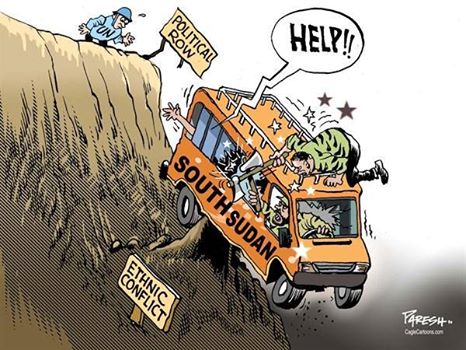
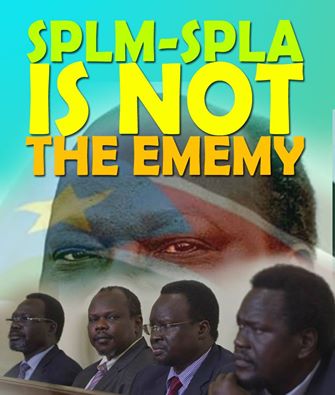
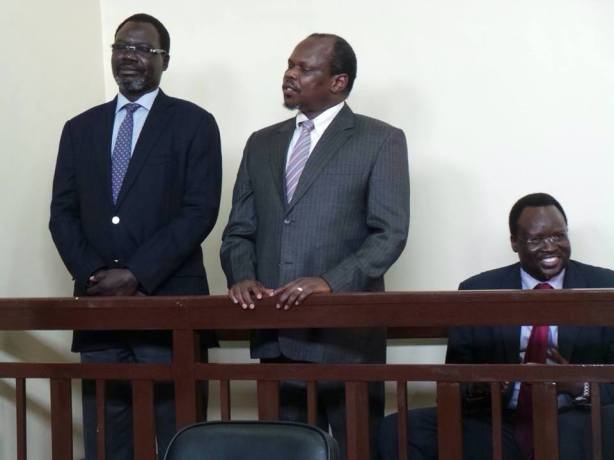

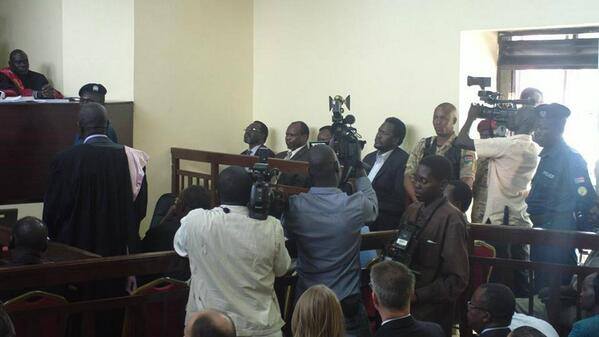
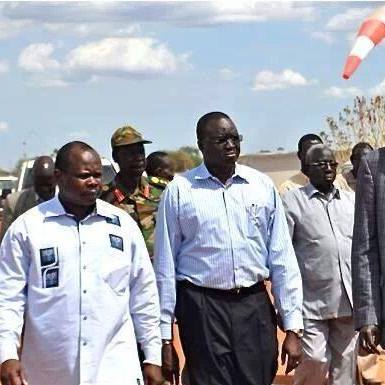
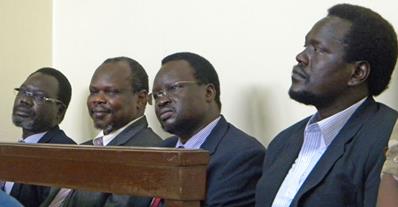
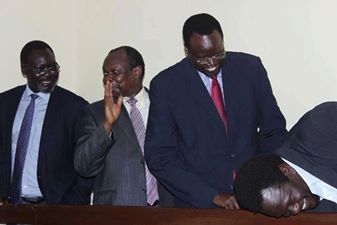

 Reporters were allowed in to the packed courtroom in the morning when the treason trial of four South Sudan political detainees began on March 11, 2014, but not in the afternoon.
Reporters were allowed in to the packed courtroom in the morning when the treason trial of four South Sudan political detainees began on March 11, 2014, but not in the afternoon.